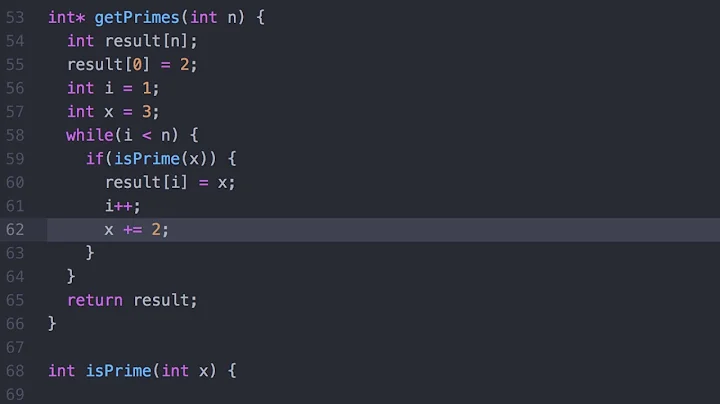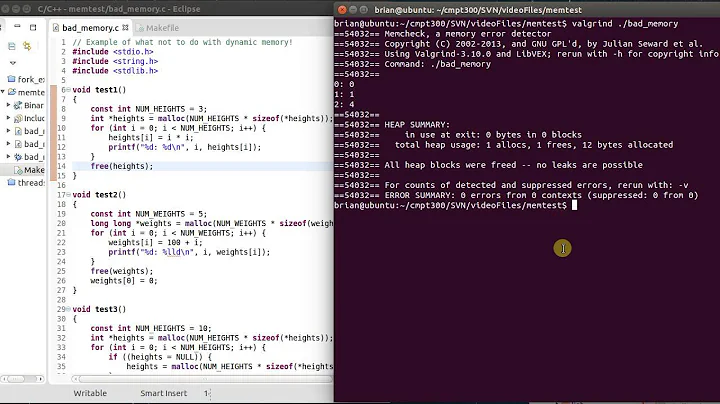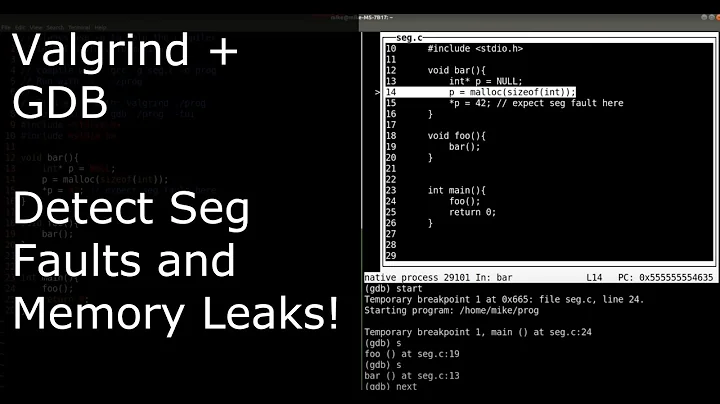Call to malloc failing in gdb session
You can safely ignore this. gdb is complaining that it doesn't have the source for malloc - and it's almost certain you don't want to step through the source.
Two easy solutions:
Use
nextinstead of step - it won't descend into functionsIf you've accidentally
steped into a function already, usefinishto run to the return statement of the function.
And an alternative approach:
You could also break a bit before the segfault, rather than stepping through the whole code.
- You can do this by putting a breakpoint on a particular line with
break <source file>:<line num>(for examplebreak foo.c:320to break on line 320 of foo.c). - Or you can break on a particular function with
break <function name>(for examplebreak foowill break at the top of thefoo()function).
- You can do this by putting a breakpoint on a particular line with
Related videos on Youtube
Schemer
Updated on October 18, 2020Comments
-
Schemer over 3 years
I am trying to debug a C program and gdb is telling me there is a segfault on line 329 of a certain function. So I set a break point for that function and I am trying to step through it. However, whenever I hit line 68 I get this complaint from gdb:
(gdb) step 68 next_bb = (basic_block *)malloc(sizeof(basic_block)); (gdb) step *__GI___libc_malloc (bytes=40) at malloc.c:3621 3621 malloc.c: No such file or directory. in malloc.cI don't know what this means. The program runs perfectly on all but one set of inputs so this call to malloc clearly succeeds during other executions of the program. And, of course, I have:
#include <stdlib.h>.Here is the source code:
// Block currently being built. basic_block *next_bb = NULL; // Traverse the list of instructions in the procedure. while (curr_instr != NULL) { simple_op opcode = curr_instr->opcode; // If we are not currently building a basic_block then we must start a new one. // A new block can be started with any kind of instruction. if (!in_block) { // Create a new basic_block. next_bb = (basic_block *)malloc(sizeof(basic_block));-
JaredPar over 12 yearsIf malloc is failing the most likely cause is heap corruption. Have you tried running your program under valgrind?
-
William Pursell over 12 yearsuse 'next' instead of 'step'. You are trying to step into malloc, and gdb is complaining that it doesn't have access to the source code for malloc. You really do not want to step into malloc.
-
Paschalis about 9 yearsHow about including the source of
mallocongdb? How can we do this??
-










